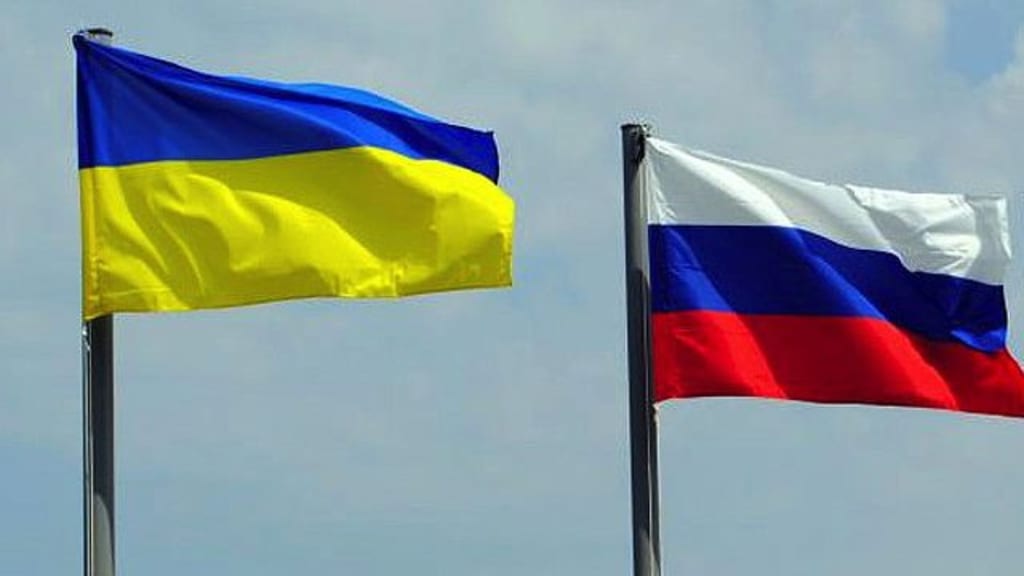
The ongoing conflict between Russia and Ukraine has been a matter of concern for the international community. Here is a brief update on the war:
The Russia-Ukraine war, which began in 2014, escalated in 2022 and has since witnessed significant developments. In recent months, the situation has remained tense, with sporadic clashes and ongoing diplomatic efforts to find a peaceful resolution.The conflict has had a significant impact on the affected regions' economy and infrastructure, and the humanitarian situation remains a concern
One notable event was the Russian military buildup along the Ukrainian border in early 2022, which raised alarm worldwide. The international community expressed concerns about the possibility of a full-scale invasion. However, following intense diplomatic negotiations and pressure, Russia eventually withdrew some of its forces. This de-escalation brought temporary relief, but tensions persisted.
In 2023, the war continued to impact the lives of people living in eastern Ukraine. The region, including Donetsk and Luhansk, remained a focal point of the conflict. Both sides accused each other of ceasefire violations, shelling, and targeting civilian areas. The humanitarian situation worsened, with thousands of people displaced and basic services severely disrupted.
International efforts to mediate the conflict continued throughout 2023. The United States and European Union played a significant role in facilitating negotiations between Russia and Ukraine. Multiple rounds of talks were held, but a comprehensive resolution remained elusive. Key issues such as the status of the disputed territories, the presence of Russian-backed separatist forces, and the rights of Ukrainian citizens in those areas remained contentious.
Meanwhile, Russia maintained its support for separatist groups in eastern Ukraine. The self-proclaimed Donetsk and Luhansk People's Republics received military and financial assistance from Russia. This support enabled the separatists to continue their resistance against Ukrainian government forces. However, the extent and nature of Russia's involvement remained a matter of dispute, with Russia denying direct military intervention.
The war also had broader implications for the region. NATO countries expressed concerns about Russia's aggressive actions, leading to increased military presence in Eastern Europe. NATO conducted military exercises and provided support to Ukraine, aiming to deter further Russian aggression. These actions strained Russia-NATO relations and contributed to an overall deterioration of East-West relations.
Economic sanctions imposed on Russia by the United States and European Union remained in place, further affecting Russia's economy. The sanctions targeted key sectors such as energy, finance, and defense, limiting Russia's access to international markets and technologies. However, Russia has sought alternative economic partnerships, particularly with countries like China, to mitigate the impact of these sanctions.
In terms of the political landscape, Ukraine witnessed some changes. Volodymyr Zelensky continued to serve as the President of Ukraine, navigating the complexities of the war. Zelensky pursued diplomatic avenues while emphasizing the need for a peaceful resolution. However, his government faced criticism from both pro-Russian and nationalist factions within Ukraine for its handling of the conflict.
It is essential to note that the situation is fluid and subject to change. For the most up-to-date information on the Russia-Ukraine conflict, I recommend referring to reputable news sources or international organizations closely monitoring the situation, such as the United Nations or the Organization for Security and Co-operation in Europe (OSCE).
In conclusion, the Russia-Ukraine war remains a protracted and volatile conflict. Despite intermittent negotiations and partial de-escalations, a lasting resolution has yet to be achieved. The war has caused significant human suffering, displaced numerous people, and strained regional and international relations. Efforts to find a peaceful solution must continue, with a focus on addressing the core issues fueling the conflict and ensuring the well-being of the affected population.





Comments
There are no comments for this story
Be the first to respond and start the conversation.